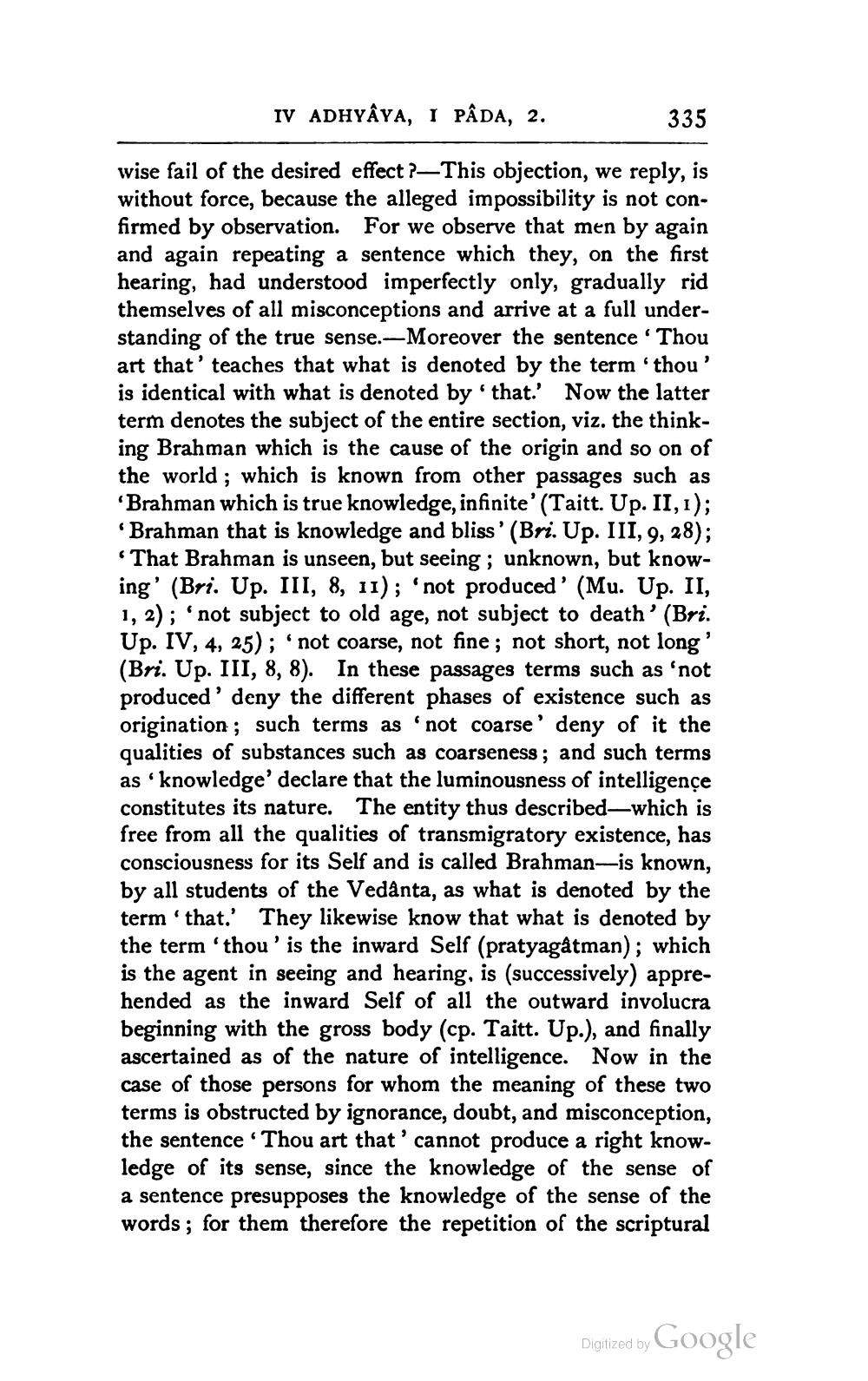________________
IV ADHYAYA, I PÂDA, 2.
335
wise fail of the desired effect ?—This objection, we reply, is without force, because the alleged impossibility is not confirmed by observation. For we observe that men by again and again repeating a sentence which they, on the first hearing, had understood imperfectly only, gradually rid themselves of all misconceptions and arrive at a full understanding of the true sense.-Moreover the sentence 'Thou art that' teaches that what is denoted by the term 'thou ' is identical with what is denoted by that.' Now the latter term denotes the subject of the entire section, viz. the thinking Brahman which is the cause of the origin and so on of the world ; which is known from other passages such as Brahman which is true knowledge, infinite'(Taitt. Up. II, 1); Brahman that is knowledge and bliss' (Bri. Up. III, 9, 28); "That Brahman is unseen, but seeing ; unknown, but knowing' (Bri. Up. III, 8, 11); 'not produced' (Mu. Up. II, 1, 2); 'not subject to old age, not subject to death' (Bri. Up. IV, 4, 25); 'not coarse, not fine; not short, not long' (Bri. Up. III, 8, 8). In these passages terms such as 'not produced' deny the different phases of existence such as origination ; such terms as 'not coarse' deny of it the qualities of substances such as coarseness; and such terms as 'knowledge' declare that the luminousness of intelligence constitutes its nature. The entity thus described—which is free from all the qualities of transmigratory existence, has consciousness for its Self and is called Brahman-is known, by all students of the Vedanta, as what is denoted by the term'that.' They likewise know that what is denoted by the term 'thou' is the inward Self (pratyagåtman); which is the agent in seeing and hearing, is (successively) apprehended as the inward Self of all the outward involucra beginning with the gross body (cp. Taitt. Up.), and finally ascertained as of the nature of intelligence. Now in the case of those persons for whom the meaning of these two terms is obstructed by ignorance, doubt, and misconception, the sentence 'Thou art that'cannot produce a right knowledge of its sense, since the knowledge of the sense of a sentence presupposes the knowledge of the sense of the words; for them therefore the repetition of the scriptural
Digitized by
Digitized by Google




